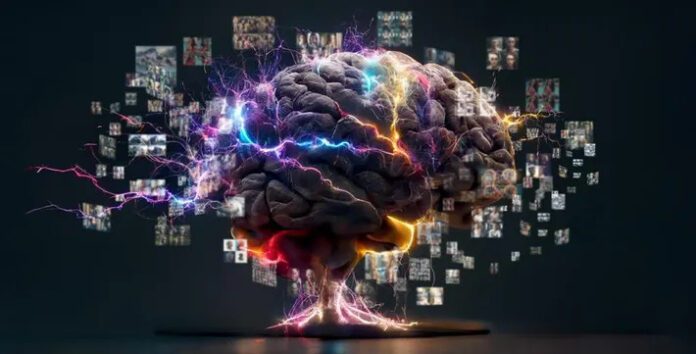Introduction
Embarking on the quest for accessible mental health care sheds light on the challenges faced in this personal narrative. From the daunting task of finding a therapist to the pervasive impact of institutional and financial privileges, the journey underscores the urgent need for innovative solutions to address the nationwide mental health crisis.
AI in Mental Health: A Double-Edged Sword
The rise of AI as a potential mental health resource is met with both optimism and skepticism. While some turn to readily available tools like ChatGPT for therapy, the inherent risks in using a tool not designed for such a purpose become evident. Privacy concerns, biases, and the lack of accountability loom large as individuals seek support from AI-driven chatbots.
Accessibility: Overcoming Barriers of Access to Traditional Mental Health Care
The Challenge:
Traditional mental health care often comes with significant barriers, including long waiting lists, limited availability of therapists, and financial constraints. These barriers can result in delayed or inadequate care for individuals in need.
AI as a Solution:
AI-powered chatbots, such as ChatGPT, offer a potential solution by providing immediate and accessible mental health support. With the ability to engage users in real-time conversations, these chatbots break down geographical and financial barriers, ensuring that individuals can seek help whenever they need it.
Potential Impact:
By enhancing accessibility, AI chatbots contribute to early intervention and support, preventing mental health issues from escalating. This proactive approach aligns with the broader goal of making mental health care more inclusive and readily available to a wider audience.
Social Support: Exploring Emotional and Social Support from AI Chatbots
The Need for Connection:
Human beings inherently seek social connections, and emotional support plays a pivotal role in mental well-being. Loneliness and isolation can exacerbate mental health issues, making it crucial to explore avenues for meaningful social interactions.
AI as a Companion:
AI chatbots, designed to simulate conversational experiences, can serve as companions offering a semblance of social interaction. Users often find solace in sharing their thoughts and feelings with these virtual entities, receiving empathetic responses that mimic human understanding.
Limitations and Caution:
While AI chatbots can provide a degree of social support, it is essential to acknowledge their limitations. The depth of emotional understanding and genuine human connection remains unparalleled. Relying solely on AI for social support may inadvertently isolate individuals from essential human interactions.
Subjectivity of Therapy: The Diverse Expectations Individuals Have of Therapy and How AI Chatbots Fit into This Framework
Varied Perspectives on Therapy:
Therapy is a subjective experience, with individuals seeking it for a myriad of reasons. Some pursue therapy for specific concerns, while others view it as a tool for personal growth, self-discovery, or managing daily stressors. The diverse expectations individuals bring to therapy contribute to its nuanced nature.
AI Chatbots as Flexible Tools:
AI chatbots, with their versatility and adaptability, can cater to diverse therapeutic expectations. Users may find value in utilizing chatbots for targeted problem-solving, behavior reframing, or even as tools for maintaining mental wellness. The flexibility of AI chatbots allows users to shape their therapeutic interactions according to their unique needs.
Unpacking the Risks of Chatbot Therapy
As individuals embrace AI chatbots for mental health support, inherent risks become apparent. From privacy issues related to sensitive medical information disclosure to the reinforcement of societal biases, the dangers extend beyond the simplicity of a chat transcript. The inadequacy of AI in capturing the nuances and cues integral to effective therapy further compounds these risks.
Privacy and Bias Concerns
- Handling Training Data: The ethical considerations surrounding the use of training data in generative AI tools.
- Systemic Biases: Reflecting and perpetuating societal inequalities within AI systems.
- The Nuances of Effective Therapy: AI’s limitations in picking up on cues and nuances essential for therapeutic effectiveness.
The Complex Role of AI Therapists
Defining what constitutes an “AI therapist” requires a nuanced understanding. Dedicated applications designed for mental health care coexist with multipurpose chatbots, leading to a blurred line between therapeutic assistance and conversational interactions. Examining existing AI therapists, such as Woebot, reveals the evolving landscape of mental health support tools.
The Spectrum of AI Therapists
- Dedicated Mental Health Apps: Purpose-built applications offering specific mental health assistance.
- Multipurpose Chatbots: Exploring the unintended use of tools like ChatGPT for therapy.
- Research into AI’s Role: The potential of AI tools in supporting human therapists beyond mimicking therapy sessions.
Charting a Responsible Path Forward
While acknowledging the risks, psychologists and researchers like Betsy Stade see potential in responsibly incorporating AI into mental health care. The focus shifts from haphazardly using chatbots for therapy to a comprehensive analysis of AI’s impact on patient outcomes. Striking a balance between technological innovation and ethical considerations becomes crucial for charting a responsible path forward.
Responsible Incorporation of AI
- Patient Outcomes as a Metric: Shifting the evaluation metric to align with psychological treatment standards.
- Research Insights: Betsy Stade’s working paper on the responsible integration of generative AI in mental health care.
- The Role of Human Therapists: Acknowledging the nuances AI cannot replicate and the importance of human intuition.
Beyond Technology: Addressing the Crisis in Mental Health Care
As the conversation around AI in mental health unfolds, it is essential to recognize that technology alone cannot resolve the broader crisis in mental health care accessibility. The need for universal health care, systemic changes, and a multifaceted approach is emphasized, even as AI tools offer exciting opportunities to fill gaps in the existing system.
A Holistic Approach to Mental Health Care
- Universal Health Care: Recognizing the need for systemic changes beyond AI applications.
- Exciting Opportunities: The potential of AI tools to expand mental health care access.
- A Call for Comprehensive Solutions: Combining technology with broader societal initiatives for effective change.
Conclusion: Striking a Balance for Mental Well-Being
In the complex landscape of AI in mental health, finding a balance between innovation and responsibility is paramount. Chatbot therapy, while not devoid of risks, can be a stepping stone towards addressing mental health care challenges. The narrative unfolds against the backdrop of a nationwide crisis, urging stakeholders to collaboratively shape a future where technology complements, rather than replaces, the nuanced care provided by human therapists.










